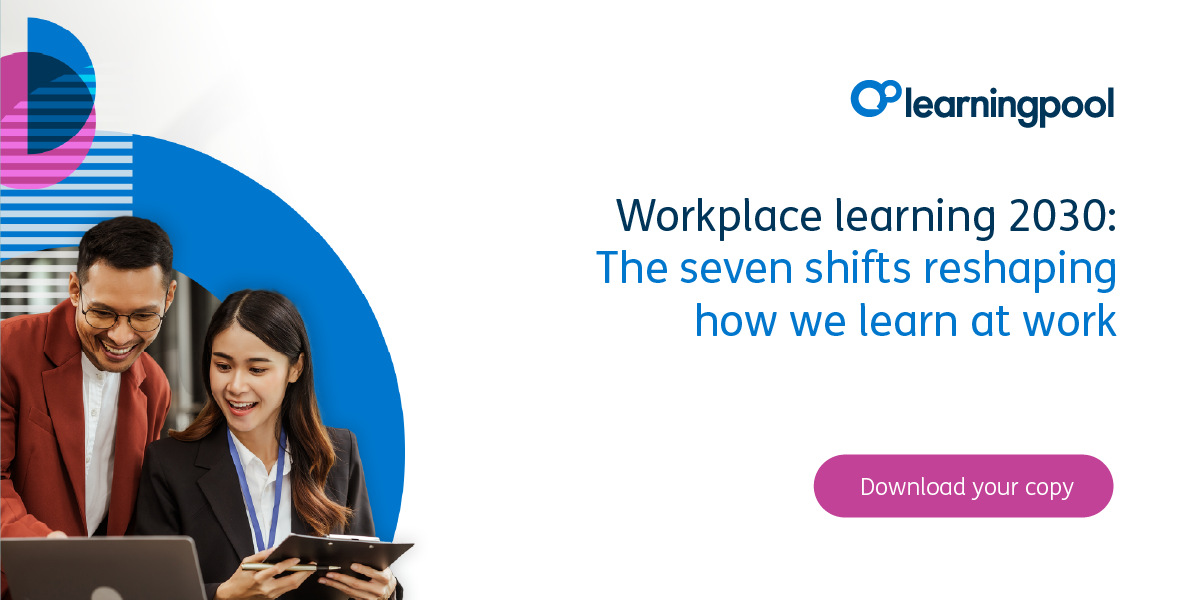Seven trends set to transform workplace learning, according to Learning Pool
Learning Pool’s new report, Workplace Learning 2030: The Seven Shifts Reshaping How We Learn at Work, highlights the key trends transforming workplace learning over the next five years. Based on customer insights and industry data, the report identifies seven major shifts—from the rise of AI and skills-based development to evolving learner expectations, connected ecosystems, and data-driven impact measurement. The research provides practical strategies for L&D leaders to embed learning in the flow of work, personalise experiences, and link learning directly to business outcomes.
TAMPA & DERRY, 10 September 2025 – Learning Pool has released new research identifying the seven major shifts that will shape the future of workplace learning over the next five years.
The report, Workplace Learning 2030: The Seven Shifts Reshaping How We Learn at Work, draws on customer insights, industry data, and market research to outline how organisations are rethinking learning design, delivery, and measurement.
The seven shifts identified are:
- AI and automation – automating content creation, identifying skills gaps, and freeing L&D to focus on strategy.
- Skills development and internal mobility – moving towards skills-based models to enable personalised growth and career mobility.
- Evolving learning expectations – employees expecting personalised, purposeful learning embedded in daily work.
- Changing use cases – learning reaching diverse audiences, including frontline and remote workers.
- Integration and ecosystem thinking – connected learning ecosystems replacing all-in-one platforms.
- Business impact and analytics – linking learning to behavioural change and measurable business outcomes.
- Compliance learning evaluation – adaptive, data-driven approaches to regulatory training.
Benoit de la Tour, CEO of Learning Pool, commented: “Workplace learning is entering a new era. It’s no longer just about delivering courses—L&D is now a strategic engine for business growth, agility, and resilience. Our research highlights how organisations that embrace these changes can close critical skills gaps, boost performance, and engage employees, partners, and customers more effectively.”
The report also provides practical guidance for L&D leaders, including embedding learning into the flow of work, using AI to personalise experiences, focusing on measurable business outcomes, and building a culture of continuous learning.
The full report, Workplace Learning 2030, is available to download from Learning Pool.


